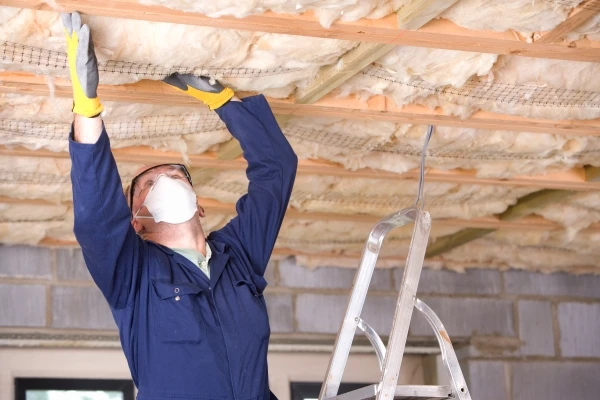When it comes to creating a comfortable and energy-efficient home, homeowners often find themselves pondering over various aspects of insulation. One area that often gets overlooked is the basement ceiling. The question that arises is, “Does basement ceiling need insulation?” In this article, we will delve into the significance of insulating your basement ceiling and explore the benefits that come with it.

Understanding the Basics: Does Basement Ceiling Need Insulation?
Does basement ceiling need insulation? This is a common question that homeowners ask when considering home improvement projects. To answer this, let’s first understand the role of insulation in a home. Insulation acts as a barrier that helps regulate temperature and conserve energy. It prevents heat loss in the winter and keeps your home cool in the summer.
When it comes to the basement, many homeowners focus on insulating walls and floors but neglect the ceiling. However, insulating the basement ceiling can offer several advantages. Let’s explore why it might be a crucial aspect of your home insulation strategy.
The Benefits
- Energy Efficiency: Insulating your basement ceiling helps in maintaining a consistent temperature throughout your home. This means less reliance on heating and cooling systems, leading to reduced energy consumption and lower utility bills.
- Improved Comfort: A well-insulated basement ceiling contributes to a more comfortable living environment. It prevents drafts and cold spots, ensuring that your basement space remains cozy year-round.
- Moisture Control: Insulation acts as a barrier against moisture, preventing dampness and mold growth. This is especially important in basements, where moisture-related issues are common.
- Soundproofing: Insulating the basement ceiling can also contribute to soundproofing your home. This is particularly beneficial if you use your basement as a living space, office, or entertainment area.
- Protecting Belongings: Proper insulation safeguards your belongings stored in the basement from extreme temperatures, ensuring they remain in good condition.
Choosing the Right Insulation for Your Basement Ceiling
Now that we’ve established the importance of insulating your basement ceiling, the next step is choosing the right insulation material. Several options are available, each with its own set of pros and cons. Some common choices include fiberglass batts, spray foam, and rigid foam boards.
Fiberglass batts are a cost-effective option and relatively easy to install. Spray foam provides excellent coverage and acts as an effective air barrier. Rigid foam boards offer high insulation value and moisture resistance.
Consider factors such as budget, climate, and installation complexity when selecting the insulation material that best suits your needs.
Read too: Help! My Ceiling Is Falling Down: Understanding Causes and Solutions for a Deteriorating Ceiling
DIY or Professional Installation?
While some homeowners may opt for a do-it-yourself approach, others may prefer professional installation. DIY insulation projects can be rewarding, but it’s crucial to ensure proper installation to reap the full benefits. Hiring professionals guarantees a thorough job, reducing the risk of potential issues down the line.
Conclusion: The Verdict on Basement Ceiling Insulation
In conclusion, the answer to “Does basement ceiling need insulation?” is a resounding yes. Insulating your basement ceiling is a worthwhile investment that pays off in terms of energy efficiency, comfort, and protection against various issues. Whether you choose to embark on a DIY project or enlist professional help, the benefits of a well-insulated basement ceiling are undeniable.
So, if you’ve been contemplating whether to insulate your basement ceiling, the answer is clear: it’s a smart move for a more comfortable and energy-efficient home. Don’t let your basement be an overlooked space; instead, transform it into an integral part of your cozy abode with proper insulation.